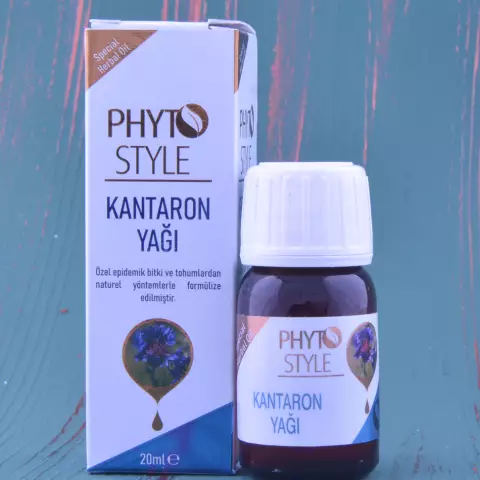- Author Rachel Wainwright wainwright@abchealthonline.com.
- Public 2023-12-15 07:39.
- Last modified 2025-11-02 20:14.
Centaury
Instructions for use:
- 1. Composition and useful properties
- 2. Application
- 3. Contraindications and harm from use

Centaury is a biennial, less often an annual medicinal plant, belongs to the gentian family. The centaury reaches up to 40 cm in height. The stems of the plant are forked-branched, the flowers are bright pink-red, collected in a panicle. Flowering time lasts from early summer to September. Centaury grows in clearings in forests, in thickets of trees and bushes, in wet meadows. It grows practically all over the world and has about 50 species, eight of which are common in Russia and the post-Soviet countries.
The medicinal plant centaury was mentioned in the writings of Hippocrates, and numerous legends and myths were formed about it. It was from the past that the scientific names of the centaury came out:
- Century;
- Centauri;
- Centoria.
In addition, there are many more popular names for this plant:
- Spool grass;
- Small centaury;
- The centaury is beautiful;
- Meyer's centaury;
- Golden thousand;
- Heart-shaped;
- Seven-watch;
- Red flower;
- Gentian;
- Spool;
- Thousander;
- Sparkle;
- Dawn.
Composition and useful properties
The beneficial properties of centaury have long been used to treat humans. The use of centaury in medicine is due to its rich chemical composition. So, the composition of the centaury herb contains the following active substances:
- Genciopicrin;
- Erytaurin;
- Bitter glycosides;
- Erythrocentaurine;
- Alkaloids;
- Essential oil;
- Vitamin C;
- Gentian;
- A nicotinic acid;
- Oleic acid;
- Mucus;
- Resins;
- Carbohydrates;
- Vitamins;
- Microelements.
The medicinal properties of centaury are widely used not only in traditional medicine, but also in official medicine. Many gastric and appetite supplements contain centaury herb. In traditional medicine, this medicinal plant is used as a tincture, decoction and infusion.
The main properties of centaury, providing its therapeutic effect, are the following:
1. Laxative;
2. Antiseptic;
3. Desensitizing;
4. Antiparasitic (antihelminthic).
The desensitizing property determines the use of centaury from alcoholism.
Application of centaury

In folk medicine, the aboveground part of the centaury, grass is used. The centaury is widely used in the treatment of diseases of the gastrointestinal tract:
- Ulcer;
- Heartburn;
- Constipation;
- Vomiting;
- Bloating.
In addition, the healing properties of centaury contribute to an increase in appetite and normalization of the entire digestion process. The medicinal properties of centaury, as an adjuvant, are used in the treatment of the following diseases:
- Diabetes;
- Anemia;
- Gynecological diseases;
- Liver disease;
- Gallbladder disease;
- Kidney problems;
- Disruption of the bladder (stones);
- Cardiovascular diseases.
Often, infusions of centaury herb are used by women to stop uterine bleeding. The beneficial properties of centaury are often used to stop bleeding after artificial and natural termination of pregnancy. In addition, the medicinal properties of centaury plant help relieve symptoms of toxicosis in pregnant women.
Doctors recommend the use of centaury in the form of an infusion for rinsing for various infectious diseases, wounds on the gums and in the mouth. In the form of a powder, centaury is used in the treatment of various skin diseases. Also, the tincture is used to treat ulcers, fistulas and wounds. Centaury and its properties are used even in the treatment of malignant tumors, and tea from this plant has a tonic and restorative effect on the body after serious diseases and operations.
Medicine officially recognized the main medicinal properties of centaury:
- Anti-inflammatory;
- Antiseptic;
- Choleretic;
- Laxative;
- Pain reliever;
- Hemostatic;
- Wound healing;
- Hepatoprotective.
The bitterness contained in centaury, improves the functioning of the gastrointestinal tract, enhances the production of gastric juice, stimulates the appetite. The content of the alkaloid gentianine allows centaury to be a good antihelminthic agent.
In folk medicine, the beneficial properties of centaury are used in such cases:
- Nervous exhaustion;
- Overwork;
- Lack of appetite;
- Flatulence;
- Stomach and intestinal cramps;
- Sinusitis;
- Migraine;
- Flu;
- Swelling;
- A liver disorder;
- Pulmonary tuberculosis;
- Alcoholism;
- Epilepsy.
The use of centaury for alcoholism is especially effective. People began to use centaury for alcoholism a very long time ago, when there were no other medicines. Centaury for alcoholism is recommended to be used in combination with other medicinal herbs (wormwood, horsetail, thyme, puppeteer, clefthoof and a number of herbs). Each individual person needs to choose the right combination and dosage of herbs, since all these plants have a strong effect.
The easiest way to prepare a folk remedy from the centaury herb for alcoholism is as follows:
2 tbsp. spoons of herbs pour 1 tbsp. boiling water and boil for 10 minutes, leave for 1 - 2 hours. The infusion must be filtered, and then the patient should take 1/3 cup 2 - 3 times a day. The course of such treatment is at least 10 days. In most cases, the craving for alcohol completely disappears, due to which the maximum effect of the centaury from alcoholism is ensured.
External use of centaury is advisable for poorly healing wounds, gout, rashes, eczema, boils, ulcers. Fresh juice in the form of drops is used to treat ear diseases. The use of centaury is effective in combating children's food allergies.
The forms of medicinal use of centaury are various:
- The juice;
- Tea;
- Butter;
- Infusions and tinctures;
- Broths;
- Compresses and rubbing.
Contraindications and harm from the use of centaury
Centaury with its properties is contraindicated in the following diseases:
- Ulcers of the stomach and duodenum;
- Gastrointestinal diseases with a tendency to loose stools;
- Acidic gastritis;
- Hypersensitivity to the active substances of the plant.
Also, excessive use of centaury is not recommended, as it can cause indigestion. And overweight people need to be careful about this plant so as not to cause a strong appetite.
When treating centaury for alcoholism, you need to be careful. This is due to the fact that the active substances of the plant have powerful properties. Therefore, in case of failure in the use of centaury from alcoholism and the continuation of alcohol consumption, along with treatment, poisoning is possible.
Information about the drug is generalized, provided for informational purposes only and does not replace the official instructions. Self-medication is hazardous to health!






